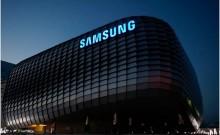The Solar Impulse 2 made a test flight on 3 March over Hawaii, as it prepares to continue on its record-breaking journey. Pilot Andre Borschberg is attempting to circumnavigate the globe on solar energy alone. The aircraft has been grounded on the Island of Oahu since July as a result of battery damage caused during the planes record 118-hour trans-Pacific flight from Japan to Hawaii last July.
The Solar Impulse 2s batteries store energy from the sun during daylight hours to keep the aircraft powered overnight, allowing it to remain aloft around the clock on extreme long-distance flights. The batteries became overheated during the planes initial ascent after take-off in June 2015 from Nagoya, Japan, en route to Hawaii on the seventh and most challenging leg of its circumnavigation attempt.
The team stressed, however, that the damage was not a technical failure or weakness in the technology. Instead, it said it had miscalculated the extent of the temperature increases and amount of insulation that would be needed for the tropical climate they encountered on the ascent from Nagoya.
Still, flight controllers and the pilot managed to successfully complete the Japan-to-Hawaii leg, safely landing in Honolulu on 3 July after five days and five nights, or 117 hours and 52 minutes aloft. The trip shattered the 76-hour record for a non-stop solo flight set in 2006 by the late American adventurer Steve Fossett in the Virgin Atlantic Global Flyer.
The spindly single-seat experimental aircraft is not expected to depart on the next leg of its journey – a four-day, four-night flight to Phoenix, Arizona – until late April or early May 2016, the team said in July.









